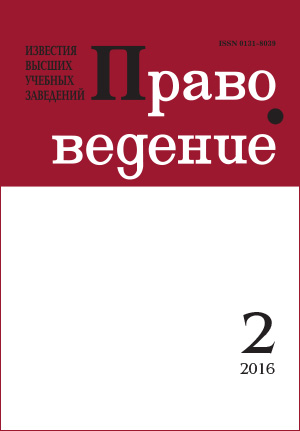From the contemporary soft law to the ancient soft law
Abstract
Soft law is a paradoxical concept meaning a law which is not fully binding, but on the other hand not fully ineffective. The history of the concept goes back only to the 1970s when it appeared in some oral statements of the British jurist Lord Arnold Duncan McNair (1885–1975). However, the assumptive novelty of this phenomenon is due exclusively to the historical ignorance of contemporary legal scholars. Indeed, the Italian legal philosopher Norberto Bobbio (1909–2004) had already drawn attention to the fact that the medieval canon law knew very well numerous optatives, such as notices (responsa) and pieces of advice (consilia). Nevertheless, as early as in the principate period the Roman law was the soft law par excellence. In its vast sector of ‘jurists’ law’ consisting of diverse and contrasting opinions (ius controversum) which were disputable and disputed in the legal community, the legal rules were emerging step by step in the process of legal discourse. This implied the admission of their gradual normativity. It means that the Roman legal rules were considered more or less binding according to their higher or lower grade of acceptance within the legal community. However, the late antiquity provoked the transition from the “jurist’s law” to the statute law. This period of legislation was terminated with the creation of the medieval school of Italian glossators who resuscitated the ancient Roman practice of giving advice rather than commands.
Keywords:
soft law, hard law, Roman law, ius respondendi, controversum, responsa, consilia
Downloads
References
Downloads
Published
How to Cite
Issue
Section
License
Articles of "Pravovedenie" are open access distributed under the terms of the License Agreement with Saint Petersburg State University, which permits to the authors unrestricted distribution and self-archiving free of charge.




